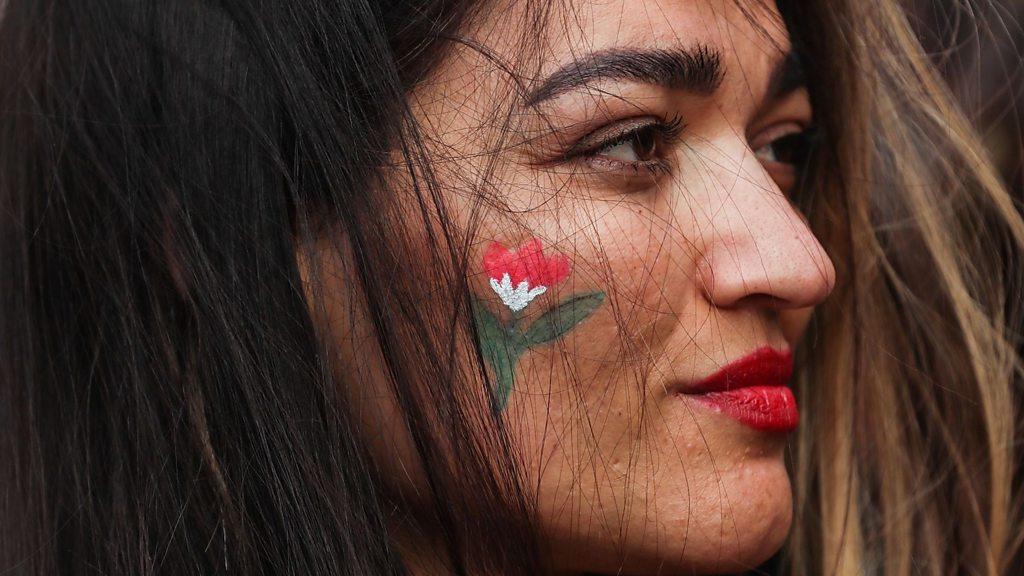Iran protests: Iran's Gen Z 'realise life can be lived differently'
- Published
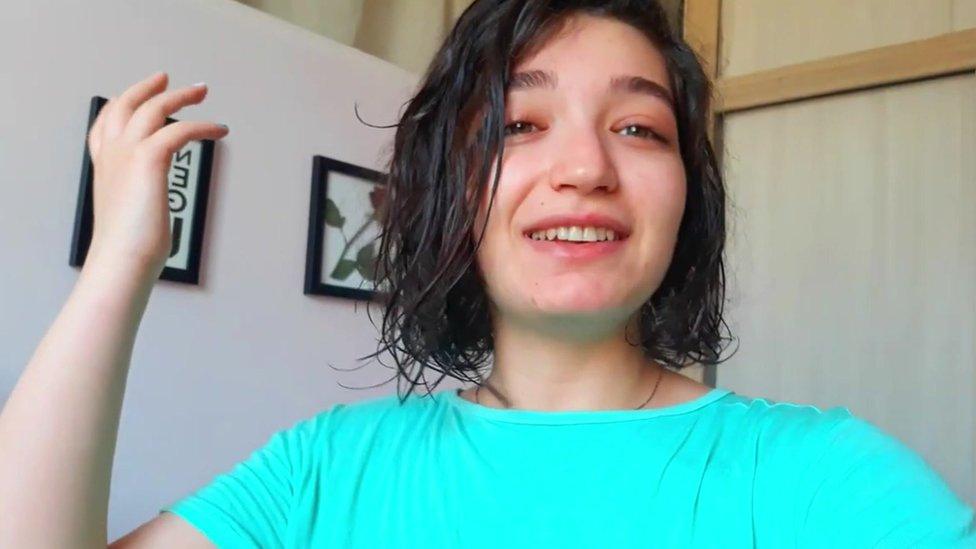
Before she died, Sarina Esmailzadeh, 16, said her generation wanted to live like young people in New York
Protests against religious rule have spread like never before through Iran's new generation of women and girls, whose parents and grandparents tried and failed to change the system from within. In video messages and on social media, young victims of a violent crackdown explain why they risked their lives to defy authorities.
"Clerics, get lost."
This is the chant of girls as young as 11 in classrooms across Iran.
Social media is full of videos of them taking down the picture of the Supreme Leader Ayatollah Ali Khamenei, ripping it up and then burning it.
"If we don't unite, one by one, we'll become the next Mahsa Amini" is another of their cries, referring to the young Kurdish woman who died in police custody after allegedly wearing her headscarf "improperly".
The protests over the death show no sign of abating, despite a violent response from authorities.
A 22-year-old TikToker called Hadis Najafi recorded a video on her phone as she walked to a protest, dreaming of a better future.
"I hope in a few years when I look back, I will be happy that everything has changed for the better," she says, as night falls around her, in the video obtained by BBC Persian.
Hadis' family told me she was shot dead nearly an hour later.
In a video on social media, her mother said she had gunshot wounds to the heart, stomach and neck.
"She came home from work and said she was hungry but before she ate, she went out to protest for Mahsa Amini," says her mother. "She went hungry."
Human rights groups say dozens of young people, including children, have been killed in the government crackdown. Many more have been arrested.
Iran's Generation Z is paying the ultimate price.

Hadis Najafi, a 22-year-old TikToker, hoped to look back on a changed Iran - but was shot to death
Hosein Ghazian, an Iranian sociologist, says the prevalence of social media is a factor in the protests, along with total disillusionment with any other chance for change.
"This generation is more up to date and aware of the world they live in," he says. "They've realised life can be lived differently."
He adds: "They see no prospect for a better future with this regime and this gives them courage."
Sarina Esmailzadeh, a 16-year-old video blogger, encapsulated this fearless attitude.
"We're not like the previous generation 20 years ago who didn't know what life was like outside Iran," she says in a video on her YouTube channel.
"We ask ourselves why aren't we having fun like the young people in New York and Los Angeles?"
These young women are prepared to risk everything so they can live a life of dignity.
Sarina went out to protest and died from severe blows to her head, according to Amnesty International.
Iran denies this and says she took her own life by jumping off a building.
Her family are under pressure to accept the state narrative and have not spoken to the media.
In one video, Sarina sings along to Hozier's song Take Me to Church. Written out of frustration with the Catholic Church's influence in Ireland, it has become a global anthem for freedom.
For Azadeh Pourzand, a human rights researcher, the protests represent a profound moment of change.
She's moved by the clarity of the young women's demands.
"The way they speak to one another in simple terms," she says. "They are much more successful than we were in communicating their demands and their hopes to the world."
She says this young generation have learned from how their parents and grandparents sought to change the Islamic system from the inside but failed.
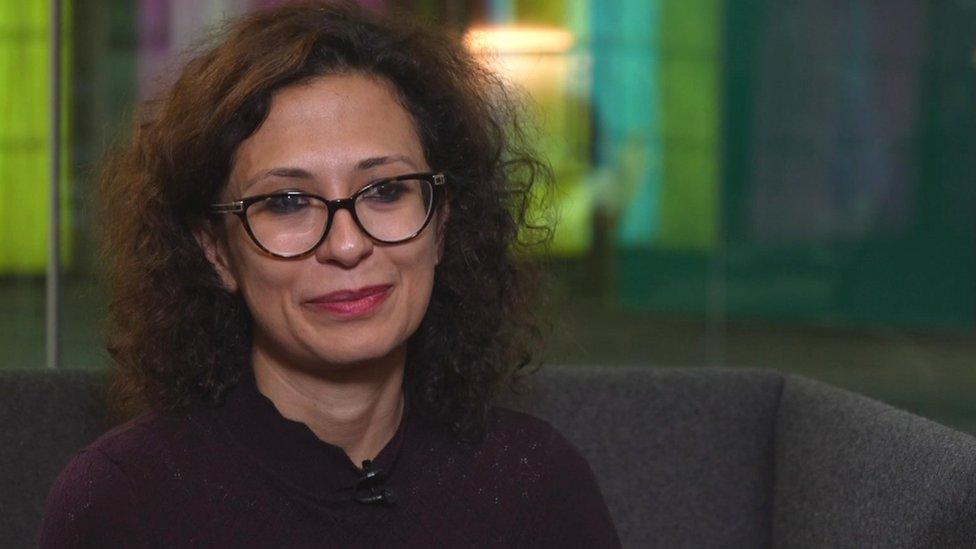
Azadeh Pourzand says young people have learned from their parents' and grandparents' attempts to bring about change
"They are the future of the older generations," she says, praising their courageous stance. "They want a life where they don't have to be scared."
The protests also have a personal connection for her. Her mother, Mehrangiz Kar, was one of Iran's leading human rights lawyers but had to flee the country. She says her mother is watching the movement with sadness and pride.
Her mother was delighted by the refusal of university students to accept eating their lunch with the sexes segregated, as is the rule.
Instead, they all sat together on the ground outside the university cafeteria
"I got my gift, the gift for my lifetime of struggle," Azadeh says her mother told her.
Now all of Iran's generations are watching and waiting.

Want to know more?
Related topics
- Published12 October 2022
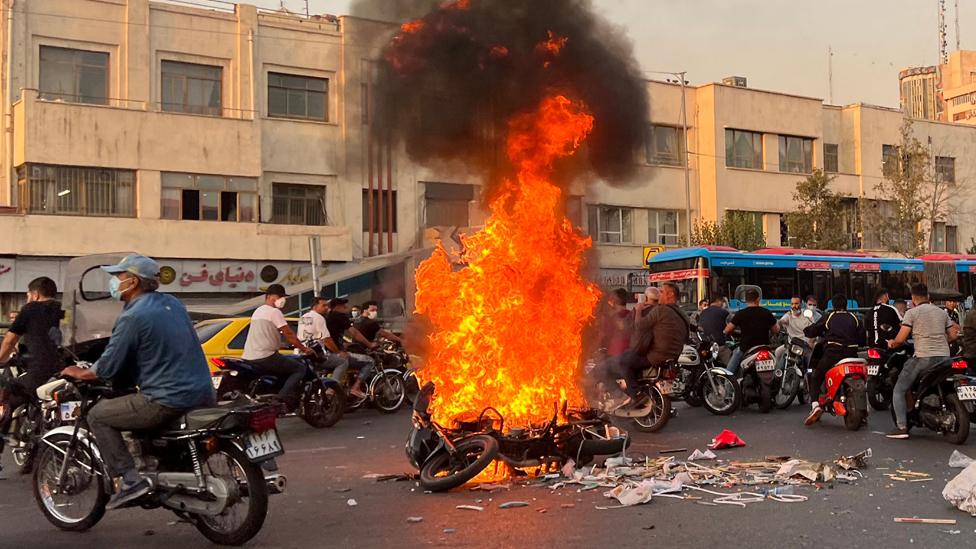
- Published10 October 2022
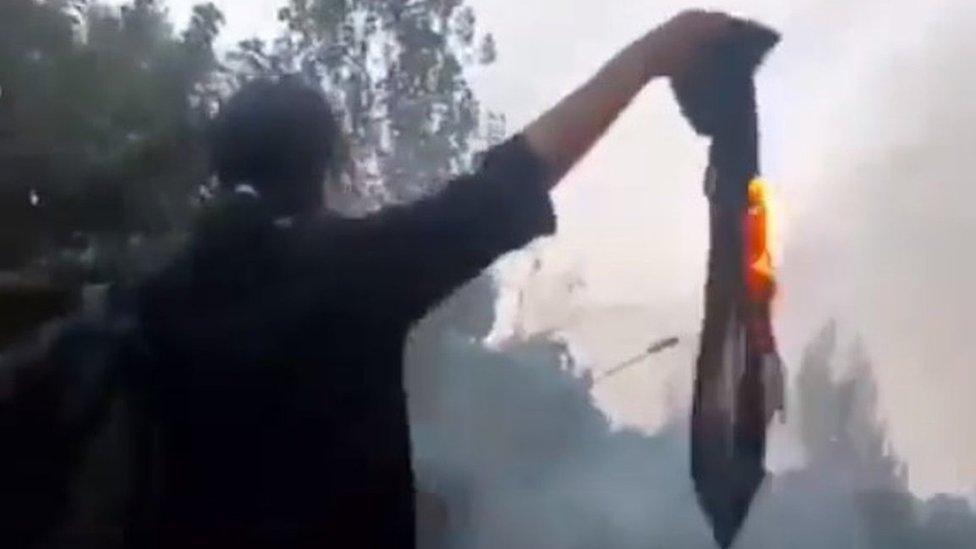
- Published7 October 2022
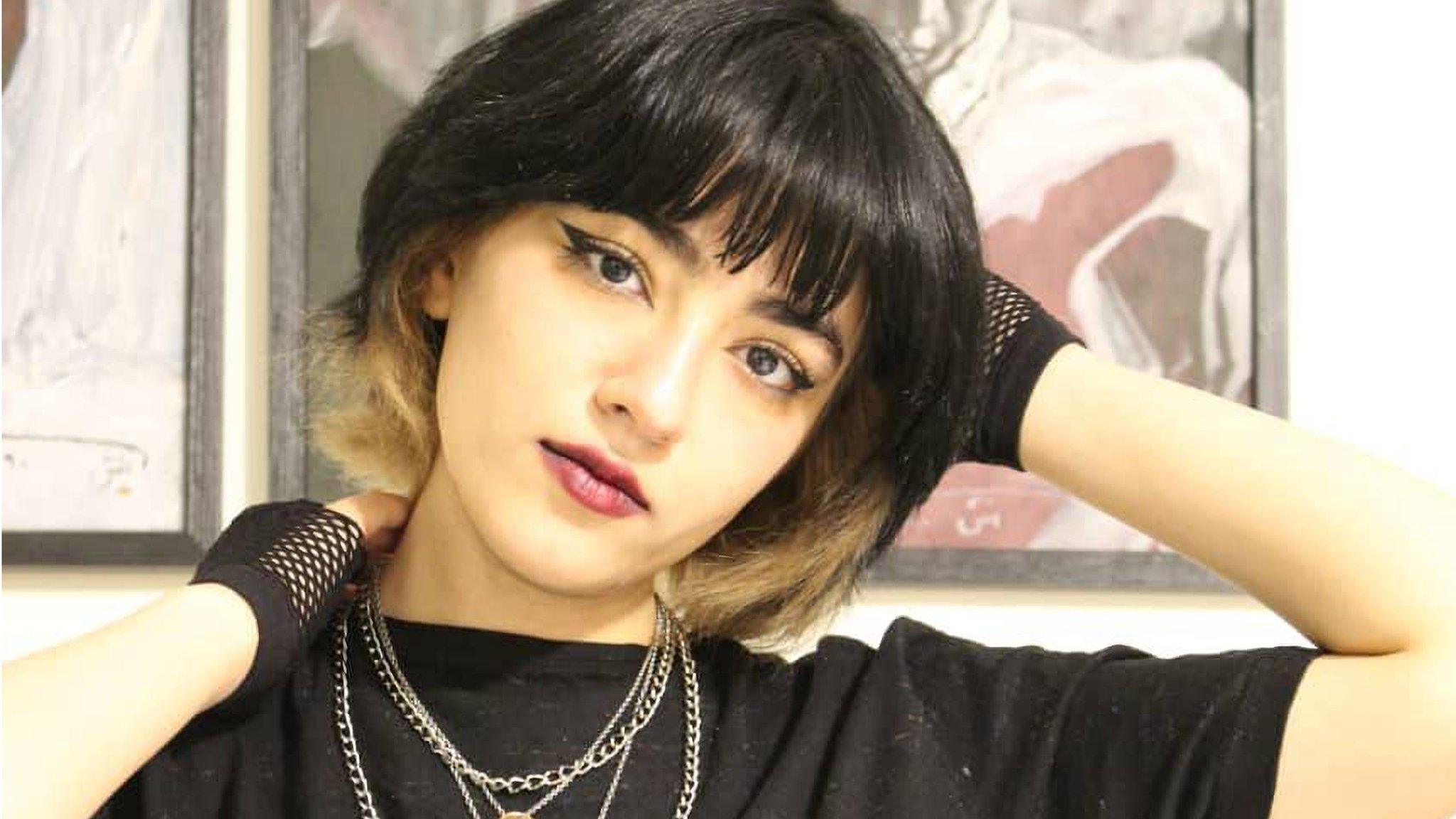
- Published6 October 2022
